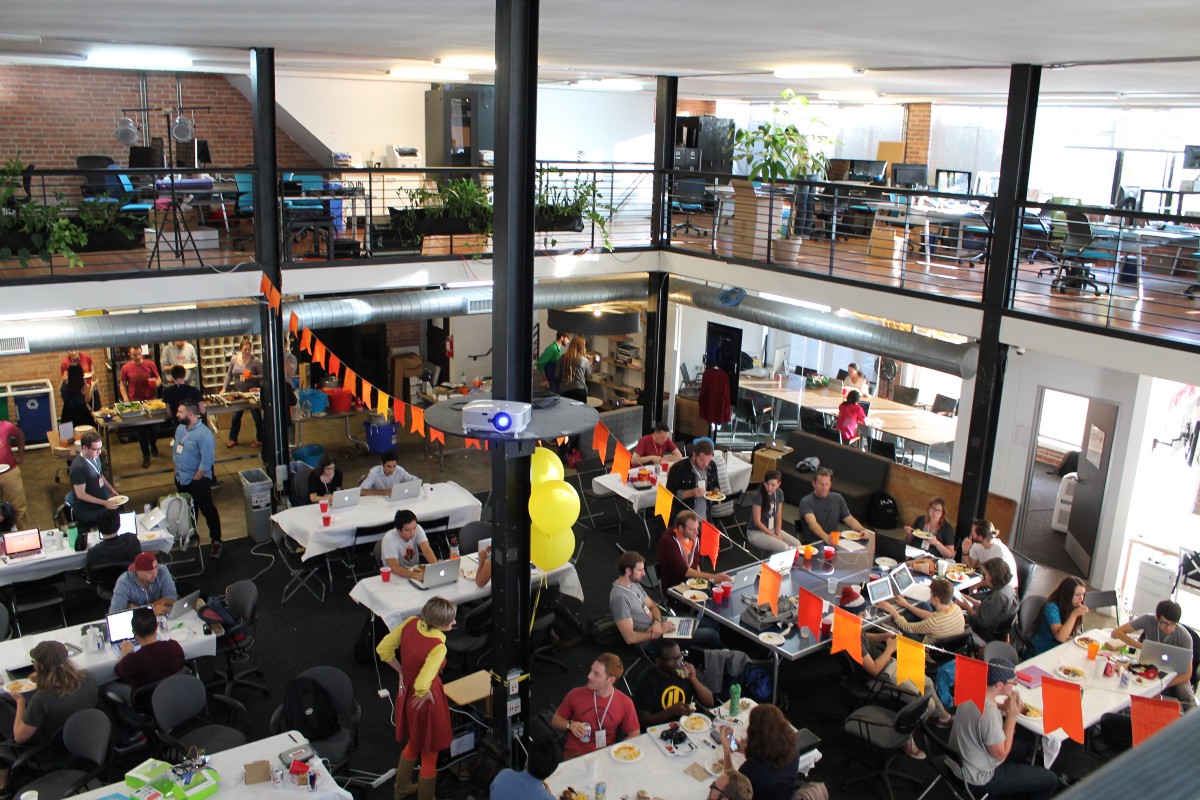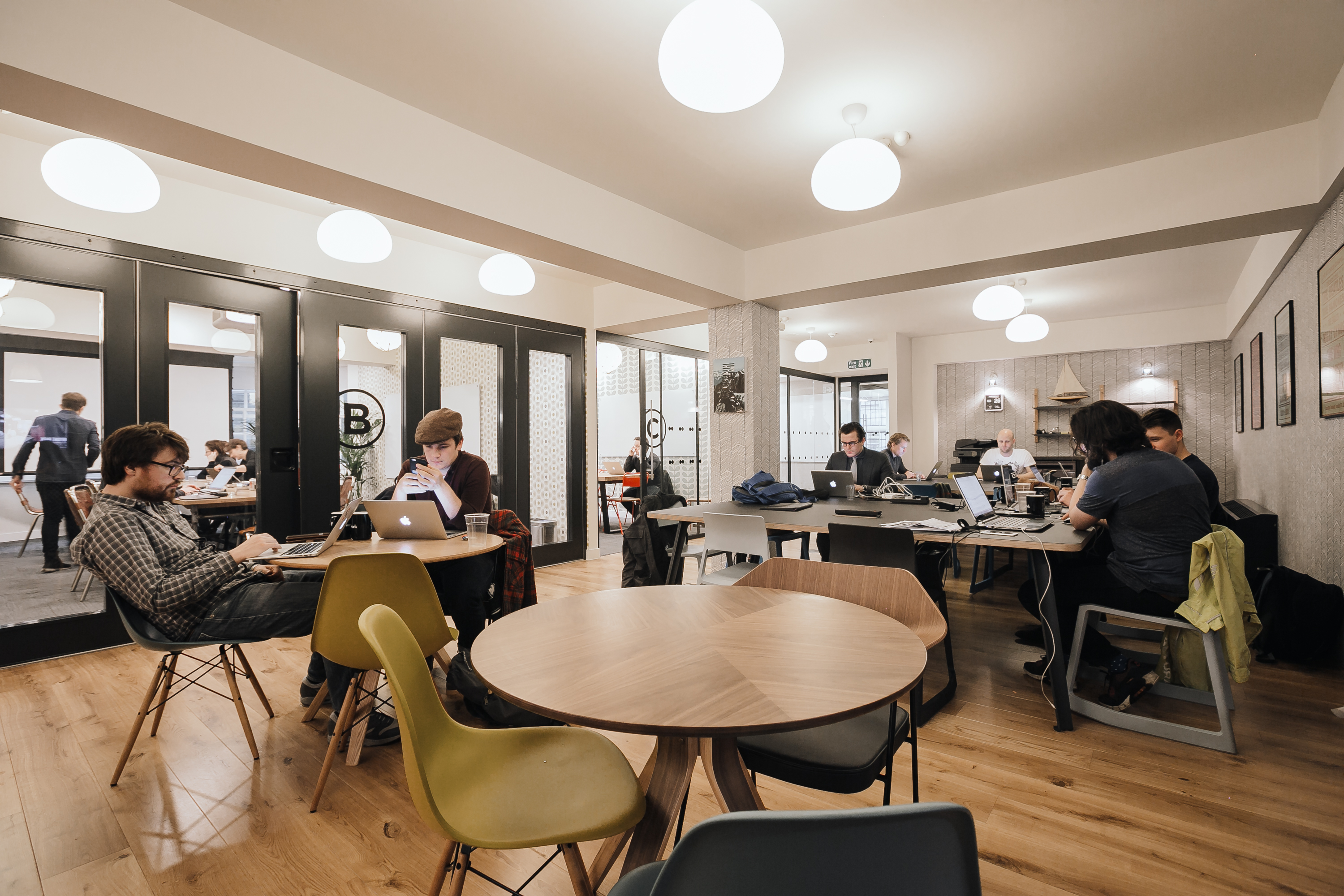DMZ guest blog by: Janey Buzugbe, Head of the Black Innovation Programs and Partnerships
Introducing Janey Buzugbe, the DMZ’s new Head of the Black Innovation Programs and Partnerships

The tech industry across Canada has been booming, and despite challenges presented by the global pandemic, the sector continues to demonstrate immense potential and strong job growth.
As a country that encourages immigration and offers professionals and entrepreneurs various methods to migrate, Canada provides a great pathway for newcomers looking to start a new journey in the sector.
In Canada, tech employment increased by nearly 60,000 positions in 2019, a growth rate of 3.6 per cent over the previous year, and now totals an estimated 1.72 million workers. Being surrounded with great opportunities at innovative companies can help newcomers to Canada find their footing faster and adjust to their new surroundings.
However, navigating the tech job market as a newcomer in Canada can be overwhelming and is not a straightforward path. As a newcomer myself from Nigeria, I can speak to this firsthand. I hope my career experiences and learnings will be useful to newcomers looking to break into the industry. Here are a few tips on how you can land a new job in tech.
Build your brand and activate it
 Your personal brand is tied to your professional brand, and learning how to activate it is essential to landing a job in tech.
Your personal brand is tied to your professional brand, and learning how to activate it is essential to landing a job in tech.
Branding yourself can be just as important as the technical skills and expertise you bring to the table. Employers and recruiters can easily forget about what qualifications you have from a pool of similar candidates, but what they will remember is your energy (some people call these interpersonal skills). Being uplifting, positive and warm will stick in people’s minds. Think about what is unique about your energy, and let it shine.
Not sure what aspects of your personality stand out? Try taking online personality tests, like Myers-Briggs, to provide yourself with empirical evidence on what personality traits you bring to the table and ask people who know you what they notice!
Another great way to activate your personal brand is to write yourself a brag book and always update it! List out all of your accomplishments that speak to the type of employee and person you are. Have you won any special awards? Any notable achievements from your personal or professional life? Has anyone ever pointed out anything nice about you, or what you have done for them?
We can often forget about our wins over time, so starting a running list to remind yourself of the great things you’ve done will allow you to shine during interviews, coffee chats and networking events.
 Remember that every interaction you have, whether it be at a formal networking event, dinner with friends or encounters with your neighbour, serves as a networking opportunity. We never know what an interaction can lead to, so it’s important to leave a positive impression. Try to leave any meaningful interaction you have with a call to action. Let any new connection you make know that you’re looking for a job in tech and to let you know if they are aware of any promising opportunities.
Remember that every interaction you have, whether it be at a formal networking event, dinner with friends or encounters with your neighbour, serves as a networking opportunity. We never know what an interaction can lead to, so it’s important to leave a positive impression. Try to leave any meaningful interaction you have with a call to action. Let any new connection you make know that you’re looking for a job in tech and to let you know if they are aware of any promising opportunities.
This can open more doors than you may think, as many jobs today are fulfilled through internal recommendations and connections! But don’t forget to lend a hand, as the best way to get is to give.
Lastly, don’t be afraid to showcase your side businesses and passion projects. Being involved with volunteer organizations, or working to create an online presence via social media is a part of you that should be front and center. Employers in Canada want to see that you have interests and hobbies outside of work. It speaks to your character, your ability to hustle and you come off as a well-rounded professional, so make sure to include your side activities on your resume and LinkedIn!
Networking
As mentioned, a lot of organizations today hire based on internal recommendations. Applying online via company websites can still be effective, but having a connection willing to vouch for you can make a world of a difference.
A really great way of connecting with others and catching wind of opportunities is community support groups and professional networks, such as the Black Professional in Tech Network and ACCES employment. Being able to lean on others in similar boats is a great way to share lessons learned and best practices.

LinkedIn groups are also an excellent way to connect with the community. For instance, there are groups catered for Nigerian IT professionals in Canada. Look for groups that would make sense for your circumstances as a newcomer and professional and use them to your advantage.
Another great tip when it comes to networking is doing your homework before connecting with someone new. Conversations will be much more effective if you have common ground to speak to. Find a few similarities between the two of you before connecting. Maybe they volunteered at the same organization as you, also immigrated to Canada or share a similar interest. Whatever the connection is, it will allow you to have an unforced conversation that flows naturally. Plus, who doesn’t like to be complimented?!
Handling Rejection
Rejection is a part of life and is something that all professionals need to get comfortable with. Do not get discouraged if you are told no. Remember that each no you receive from a potential employer is one response closer to a yes. “No” means you get the chance to look forward to the next opportunity.
Try asking yourself, how many passes does it take before you get a yes? If you gamify it this way, it allows you to not take things personally. There are many different reasons why you could be rejected, some of which may be completely out of your control. Instead of being discouraged, use your learnings for the next opportunity that comes your way.
 Canadian nuances
Canadian nuances
It’s important to recognize that every country has its own business culture and customs. Brushing up on the norms and nuances in Canadian business culture will ensure you don’t have any blindspots.
For instance, in Nigeria, having respect for authority figures is of the utmost importance. Oftentimes individuals will not ask questions or question an authority figure because they have fear of retribution. Whereas in Canada, asking questions and rethinking the way things are done is highly praised. Furthermore, in Nigeria, people often tend to keep their head down and focus on simply getting the work done. In Canada, connecting with colleagues, joining special committees or volunteering for a special opportunity is very well regarded.
The job market in Canada is certainly competitive, but with the right mindset and approach you will be able to land your dream job in the industry. Remember to not give up, and keep trying – something will come up!
Want to learn more about Janey and her advice to newcomers? Check out her YouTube channel for more lessons, tips and resources to navigate working and living as a professional in Canada.
For more information on how the DMZ is empowering the next wave of Black entrepreneurs through our Black Innovation Programs, check out our website.






